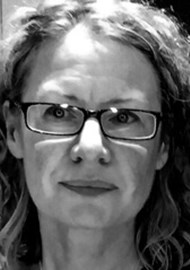Over the last few years, the mental and emotional wellbeing of those who work in medicine has come under scrutiny. The author introduces a new resource.
Working in healthcare has always been stressful but never more so than today. In an environment of targets, scant resources and an increasingly litigious society; which now also faces huge unknowns in the COVID-19 pandemic, these are difficult times indeed. Whether it affects us personally or not, there is no denying that over the last few years the mental and emotional wellbeing of those who work in medicine has come under scrutiny. A new resource offers respite from the storm.
The mental health and wellbeing of clinicians is rightly a concern of anyone who works with and in healthcare today. In 2019 the Kings Fund reported: “sickness absence rates in the NHS are higher than in the rest of the economy. NHS staff sickness rates rose from 3.8% in April 2018 to 4.1% in April 2019. This is the highest level at that time of the year in more than a decade and represents more than 1.4 million full time equivalent (FTE) days lost in that month alone” [1]. Anxiety, stress, depression and mental illness represents a quarter of the staff absences and far outstrips all other causes. Sadly, stigma in the NHS around mental health is a factor in people not speaking out about their difficulties.

In 2019 Dr Clare Gerada, who founded the Practitioner Health Programme, said: “put simply doctors experience stigma at personal, professional, and institutional levels which prevents them from seeking and receiving appropriate help. All too often they either suffer in silence or present late, in crisis or following a drink-drive offence. Sadly, suicide can be the first presentation of mental illness in a doctor” [2].
Whilst it is admirable that finally attention is being given to these grave issues and interventions are available, there appears to be a gap in the support of those who are not yet unwell, but who, with no respite from their workplace stresses, could in time develop mental illness. Medicine can be a lonely profession, and the endemic culture is one of reluctance to talk about difficult experiences. If we are able to talk about issues before we reach crisis point, perhaps we can better cope with the daily demands?
In February 2019 a new, free resource was launched, targeting, but not exclusively, those who work in the healthcare professions. The Re-humanising Revolution is a blog which publishes personal stories by those who work in healthcare and education. Stories are curated and anonymised to protect identities and tell of the pleasure and the pain of working in medicine and medical education. Categories on the homepage help readers to find posts relating to clinician or patient stories, to leadership, identity, grief, culture, education and stress and burnout.
The aim of the site is to break the conspiracy of silence among professionals who give of themselves in their work, but are afraid to share their inner emotions: in a profession where judgement and reprisals are sadly rife.
The site is curated by Hayley Allan a medical educationalist who works with trainers across the clinical spectrum, and Sarah Hall, an Emergency Department consultant and trainer. Through their different but complementary roles they both recognise the power of stories to make sense of experience, to explore themes and ideas, and to connect with others. Both curators had personal blogs before starting the Re-humanising Revolution and both act as authors as well as curators of submitted pieces.
Stories are between 500 and 1300 words and may be serialised if longer. From April 2020 an additional page was added to the blog, called the Covid Diaries, which offers a range of personal perspectives and experiences. Interestingly clinician contributions have lessened slightly under lockdown and one wonders whether the reason for this is related to workload, emotional impact or political sanction? Despite the appreciation of the space to unload, share and connect, it would seem that old habits die hard.
The response to the blog has been overwhelmingly positive. From loving the calming photography and overall style of the pages, to identifying with specific issues, comments have been supportive and appreciative. Private communications have thanked the curators for the opportunity to read about others’ experiences and to share their own in a liberating and safe way.
Once COVID-19 is over, there will be many people, especially those working in healthcare, who will need support, a listening ear or an emotional outlet to help make sense of these strange times. The hope is that by encouraging reflective and creative pursuits our community is able to mitigate the growing mental health and burnout pandemic we face.
If you have a story you would like to share, please contact us below.
The Re-humanising Revolution blog is available here: https://re-humanising.co.uk/
References
1. NHS sickness absence: let’s talk about mental health. The King’s Fund:
https://www.kingsfund.org.uk/
blog/2019/10/nhs-sickness-absence
2. Clare Gerada: Protecting practitioners’ health. BMJ Opinion:
https://blogs.bmj.com/bmj/2019/10/31/
clare-gerada-protecting-practitioners-health/
(All links last accessed June 2020)




